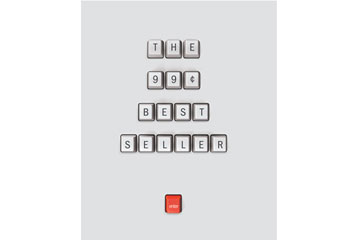
(6 of 8)
Some self-published authors, for instance, have dispensed with the bother of writing; instead they plagiarize, or they repackage works in the public domain, sometimes under titles that are similar or identical to those of current best sellers. A subculture of Internet marketers, gathering on websites with names like Warrior Forum, trade in private label rights--generic content that buyers republish under their own names, the same way Safeway markets its own brands of beans. "I don't like to write. I actually hate writing," a private-label-rights guru says in a YouTube training video posted last January. "I still have over 450 books on Kindle." Amazon tries to ban those who purvey such spam content, a sanction the marketers call the "Kindle slap."
Publishing executives say their refined taste protects readers from such spam. Konrath scoffs at what he calls the "tsunami of crap" argument, pointing out that physical bookstores have always been filled with lousy novels. The teeming online marketplace, he contends, is far better at determining reader preferences than some solitary book editor.
"Quality," he says, "is a rigged question."
The Cost of Going Solo
You don't have to be a snob to wonder, though, how anyone who makes a living at self-publishing can find the time to write a decent book. Back in March, I met one of the indie movement's biggest sellers, romance novelist Bella Andre, at a caf in San Francisco. A cheerful motormouth with a Stanford economics degree, she tells me how losing a Big Six publishing contract spurred her to create a thriving small business. Since 2010, Andre--whose real name is Nyree Belleville--has self-published 17 e-books, many of them from her backlist of old novels, to which she retained the digital rights. She claims she has sold over a million copies so far this year, making $2.4 million.
Besides writing, Andre, who is 39 and has two young children, now spends much of her time on functions once performed by her Big Six publisher. In addition to her flagship brand, "steamy romance," she manages a chick-lit line under a different pseudonym and a new children's series by her husband. She does all her cover art herself because she thinks she knows her product best; writes the back matter; publicizes her work via e-mail, Facebook and Twitter; oversees translation for foreign markets; plays with pricing; and travels to speak at events like the London Book Fair. She says she writes 2,000 words a day, relying on "beta readers"--writer friends--to give her editorial guidance. She estimates that she works about 70 hours a week.
"It's crazy, and I don't get a lot of sleep, but I've worked, like, eight years to be in a position to be a writer who has a huge fan base," Andre says. "I feel like I'm young enough and ambitious enough to just go, go, go, and I'll sleep later."
